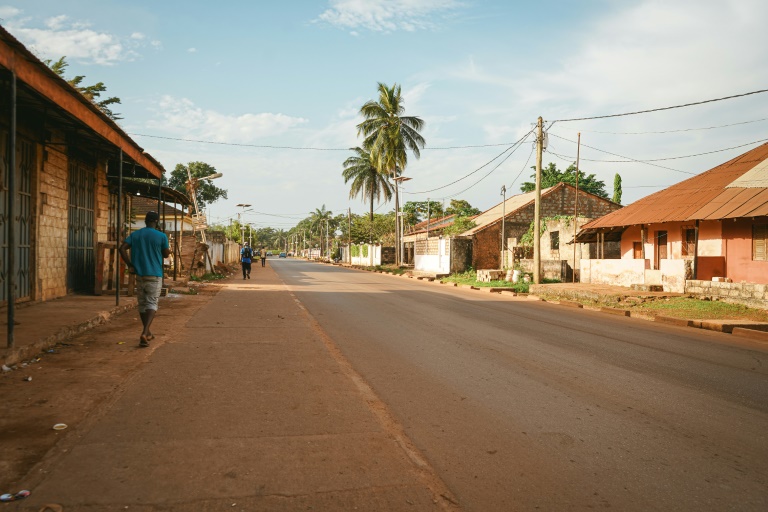The Guinea-Bissau army ordered National Guard forces back to barracks on Saturday, following unrest that left at least two people dead and brought condemnation from the regional bloc ECOWAS.
Clashes between members of the National Guard and special forces of the presidential guard broke out Thursday night in the capital Bissau, leaving two dead.
A military official, speaking anonymously due to the sensitive nature of the situation, said six soldiers were injured in the fighting and evacuated to neighbouring Senegal.
Calm had returned by noon on Friday to the small nation with a history of instability, following the announcement that the army had captured Colonel Victor Tchongo, commander of the National Guard.
On Saturday the security presence in Bissau was reduced, but soldiers were still visible around certain strategic buildings such as the presidential palace, the judicial police headquarters and some ministries.
Some National Guard officers and soldiers fled into the interior of the country, the army said in a statement Saturday, without specifying numbers.
“The General Staff of the armed forces hereby informs them that they must return to their place of assignment,” the statement continued.
The Economic Community of West African States (ECOWAS), in a statement Saturday, said it “strongly condemns the violence and all attempts to disrupt the constitutional order and rule of law in Guinea-Bissau”.
“ECOWAS further calls for the arrest and prosecution of the perpetrators of the incident in accordance with the law,” the Abuja-based organisation added.
The regional bloc also expressed “its full solidarity with the people and constitutional authorities of Guinea-Bissau”.
A spokesman for UN chief Antonio Guterres, Stephane Dujarric, had called Friday for calm and urged the security forces and the army “to continue refraining from interference in national politics”.
Members of the National Guard Thursday evening stormed a police station to extract Finance Minister Souleiman Seidi and Treasury Secretary Antonio Monteiro, according to army and intelligence officers.
The two government members were being questioned about the withdrawal of $10 million from state accounts. They had been detained under orders of state prosecutors, who are named by the president.
The National Guard, on the other hand, is under the control of the interior ministry, which, like most ministries in the country, is dominated by the PAIGC party whose coalition won the June 2023 elections.
The two government members were detained again after the army removed them from National Guard control.
Government spokesman Francisco Muniro Conte said Saturday: “We have always opted for the application of the law. A president who is elected must complete his term of office.”
“We cannot obstruct people who are facing justice, if the law is really respected,” he added.
President Umaro Sissoco Embalo, who was elected to a five-year term in December 2019, is in Dubai to attend the COP28 climate conference.
Since gaining independence from Portugal in 1974, Guinea-Bissau has seen a series of coups and coup attempts, the most recent being a failed overthrow in February 2022.







